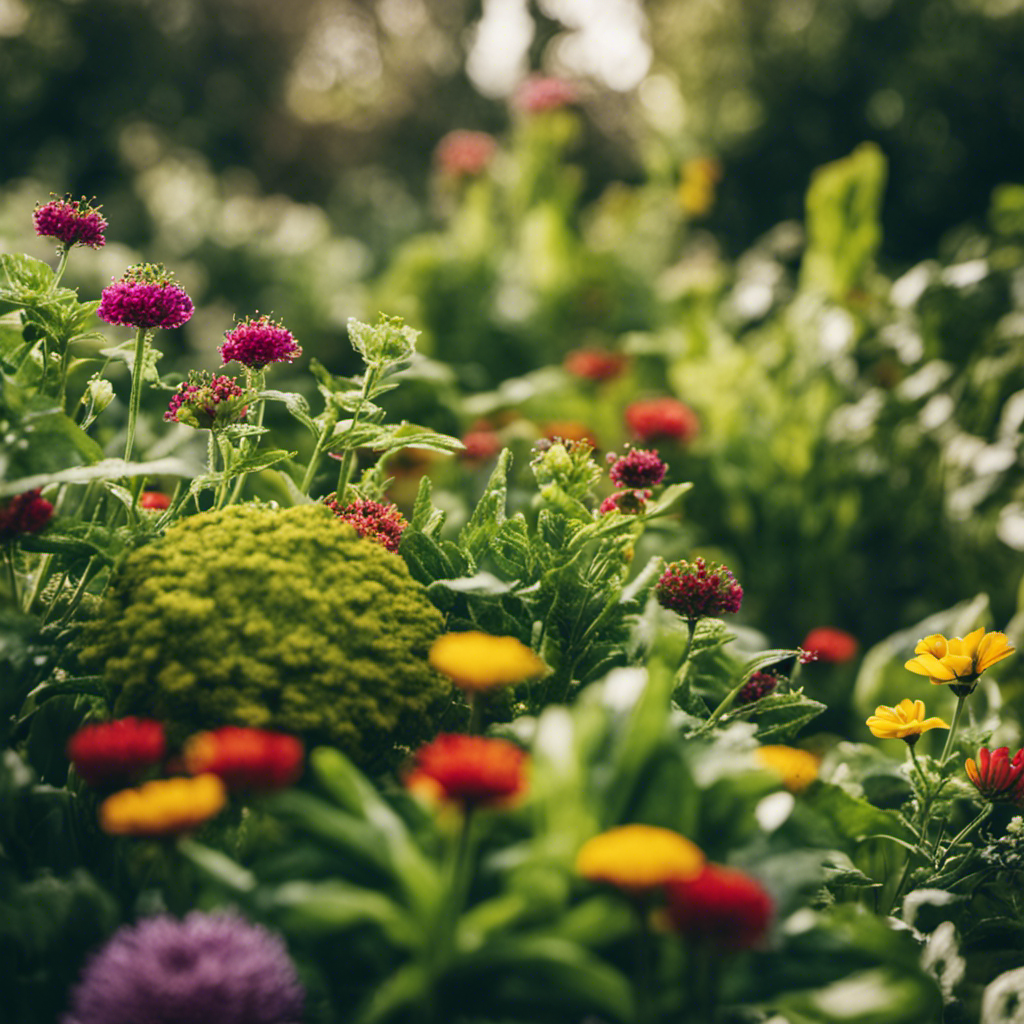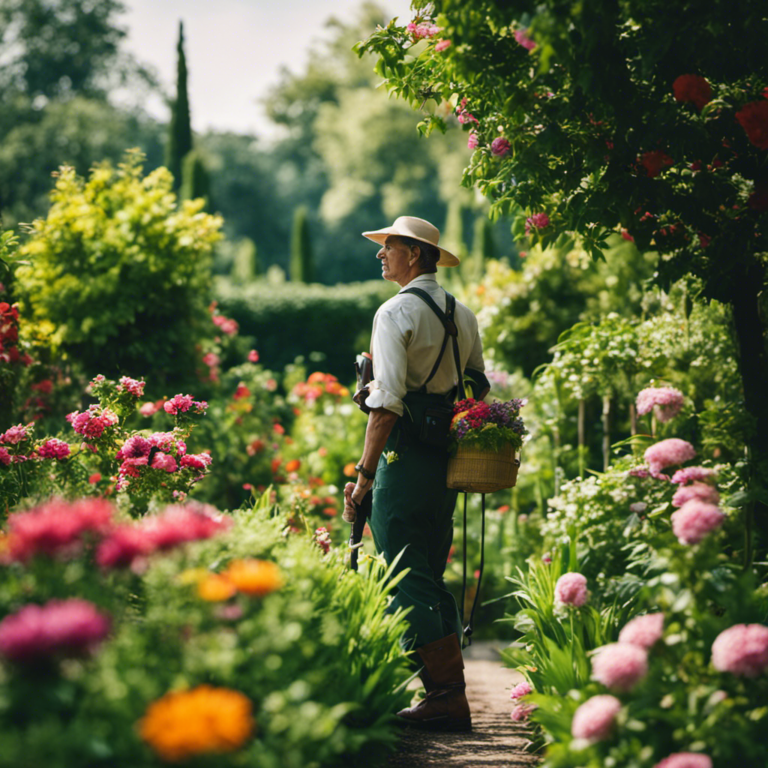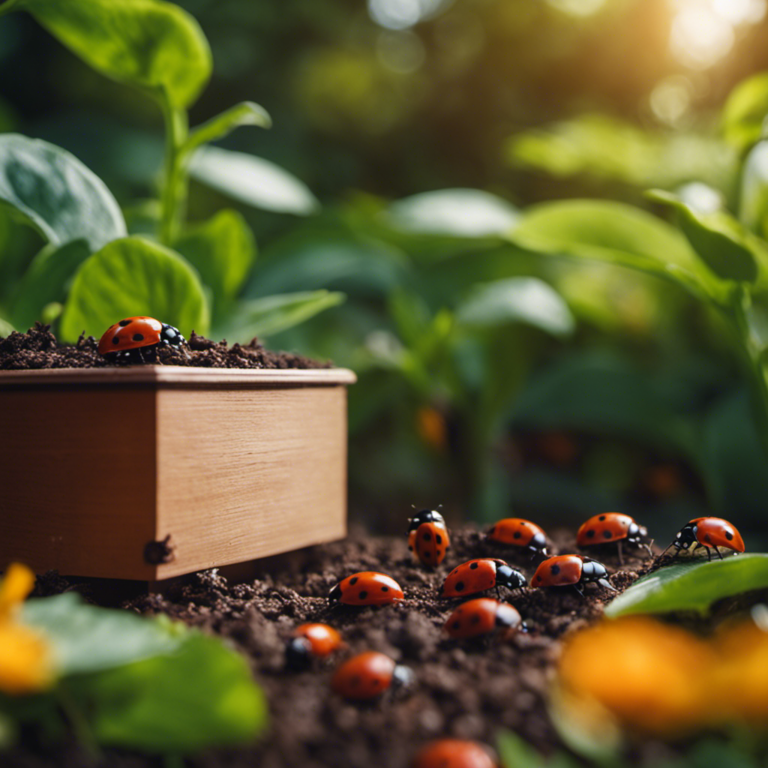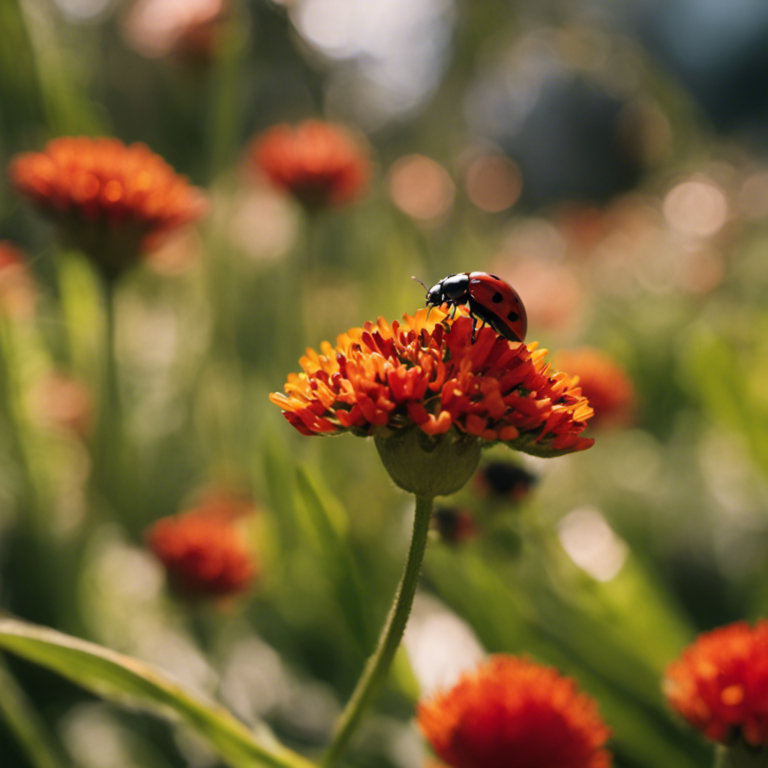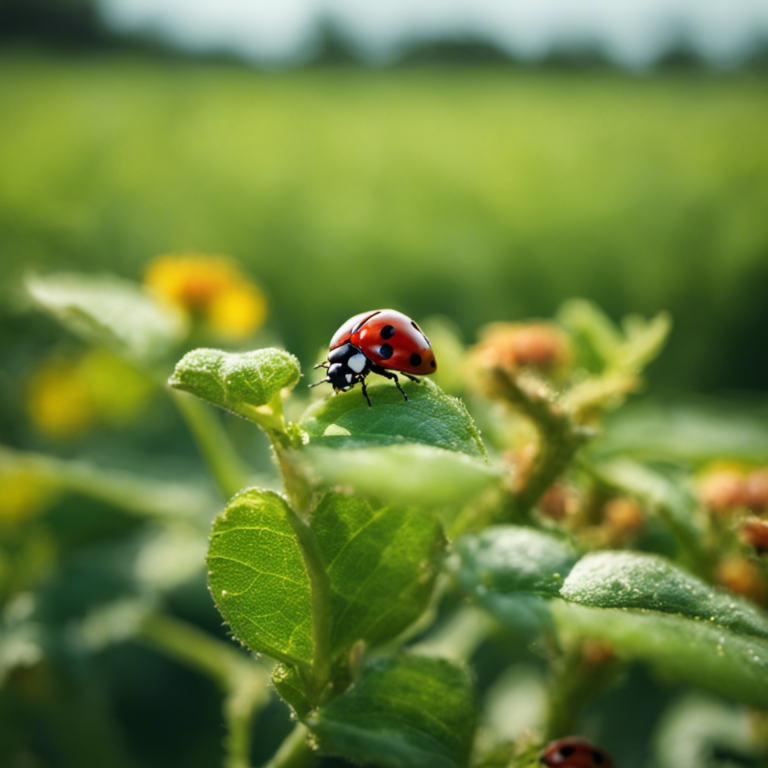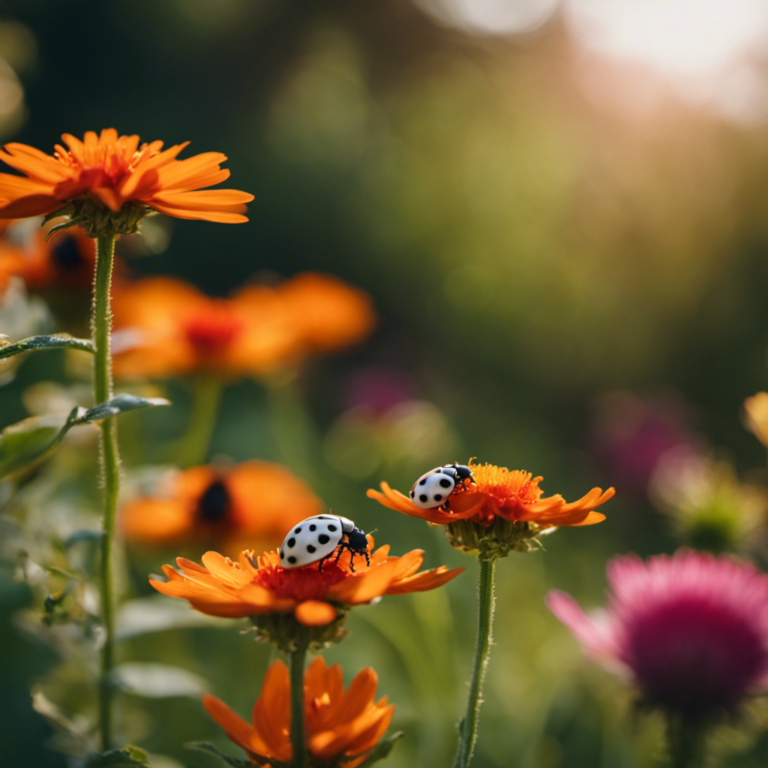Are you ready to achieve a pest-free garden in just 30 days? Look no further than organic gardening techniques!
Contrary to popular belief, you don’t need harmful chemicals to keep pests away. By using methods like companion planting, attracting beneficial insects, making homemade sprays, using physical barriers, and practicing crop rotation, you can naturally create a thriving garden.
Say goodbye to annoying pests and hello to a lush and vibrant garden that will impress your friends and family.
Let’s start your journey to a pest-free paradise!
Key Takeaways
Achieve a Pest-Free Organic Garden Naturally in 30 Days
Creating a pest-free organic garden using natural methods is easier than you think. In just 30 days, you can implement a few practices that will keep pests at bay without resorting to harmful chemicals. These methods include companion planting, attracting beneficial insects, making homemade pest sprays, using physical barriers, and implementing crop rotation.
Companion planting involves strategically placing certain plants together to deter pests. For example, planting marigolds alongside tomatoes can repel harmful insects. Attracting beneficial insects like ladybugs and lacewings can also help control pests naturally. You can do this by planting flowers and herbs that attract these beneficial insects.
Homemade pest sprays can be made using ingredients like garlic, neem oil, or soap. These sprays can effectively control pests without harming the environment. Physical barriers such as fences, netting, or row covers can also be used to protect your plants from pests.
Implementing crop rotation is another important practice in organic gardening. By rotating your crops each season, you can disrupt pest life cycles and reduce the risk of infestations.
By practicing these techniques, you not only create a pest-free garden but also contribute to a healthier environment. Start incorporating these practices today and enjoy the benefits of a pesticide-free garden.
Remember, a little effort goes a long way in creating a sustainable and vibrant organic garden.
Companion Planting
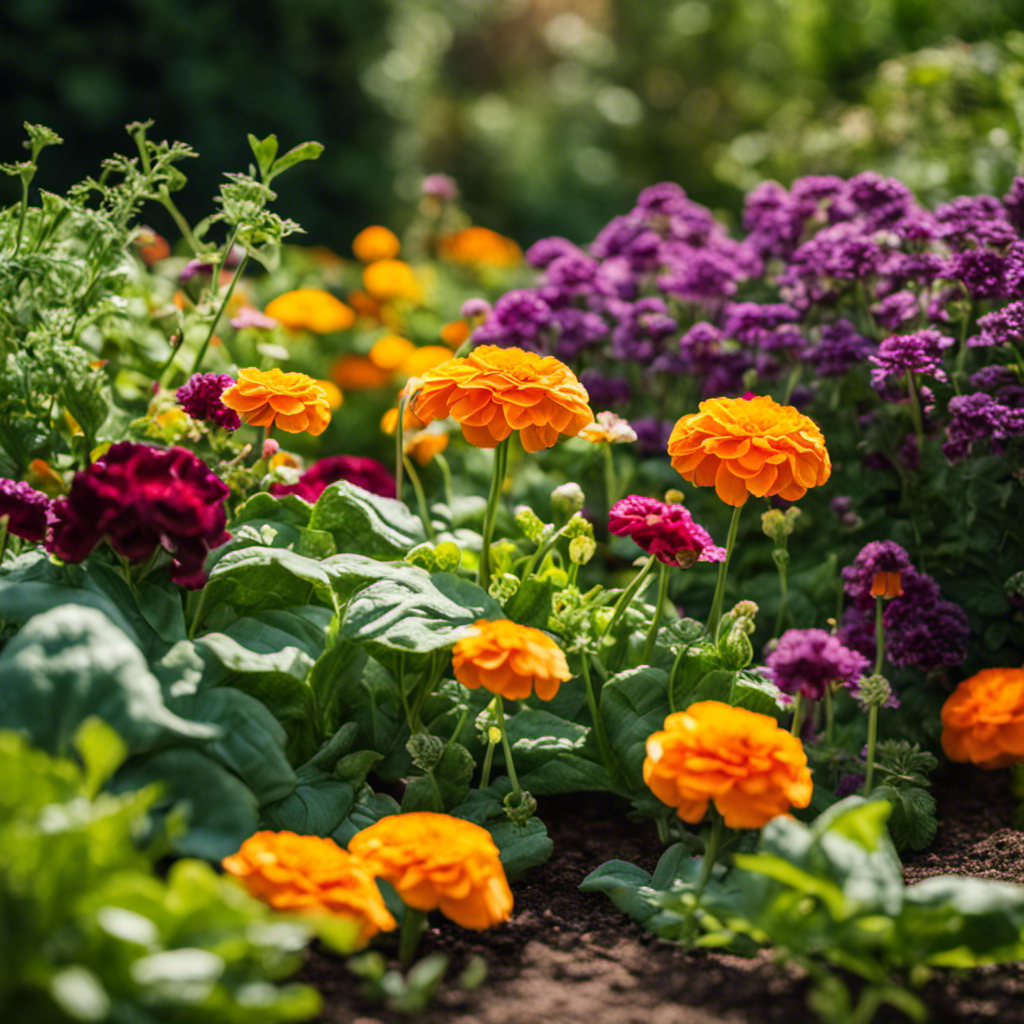
Achieve a pest-free organic garden in just 30 days by implementing companion planting techniques.
Companion planting involves interplanting different crops in close proximity to benefit each other. This method not only helps deter pests but also improves soil fertility and promotes healthier plant growth.
By strategically planting certain crops together, you can create a natural barrier against pests and reduce the need for chemical pesticides. For example, planting marigolds alongside tomatoes can repel nematodes, while basil planted with tomatoes can enhance their flavor and repel pests.
Similarly, interplanting beans with corn can improve soil fertility by fixing nitrogen.
Beneficial Insects
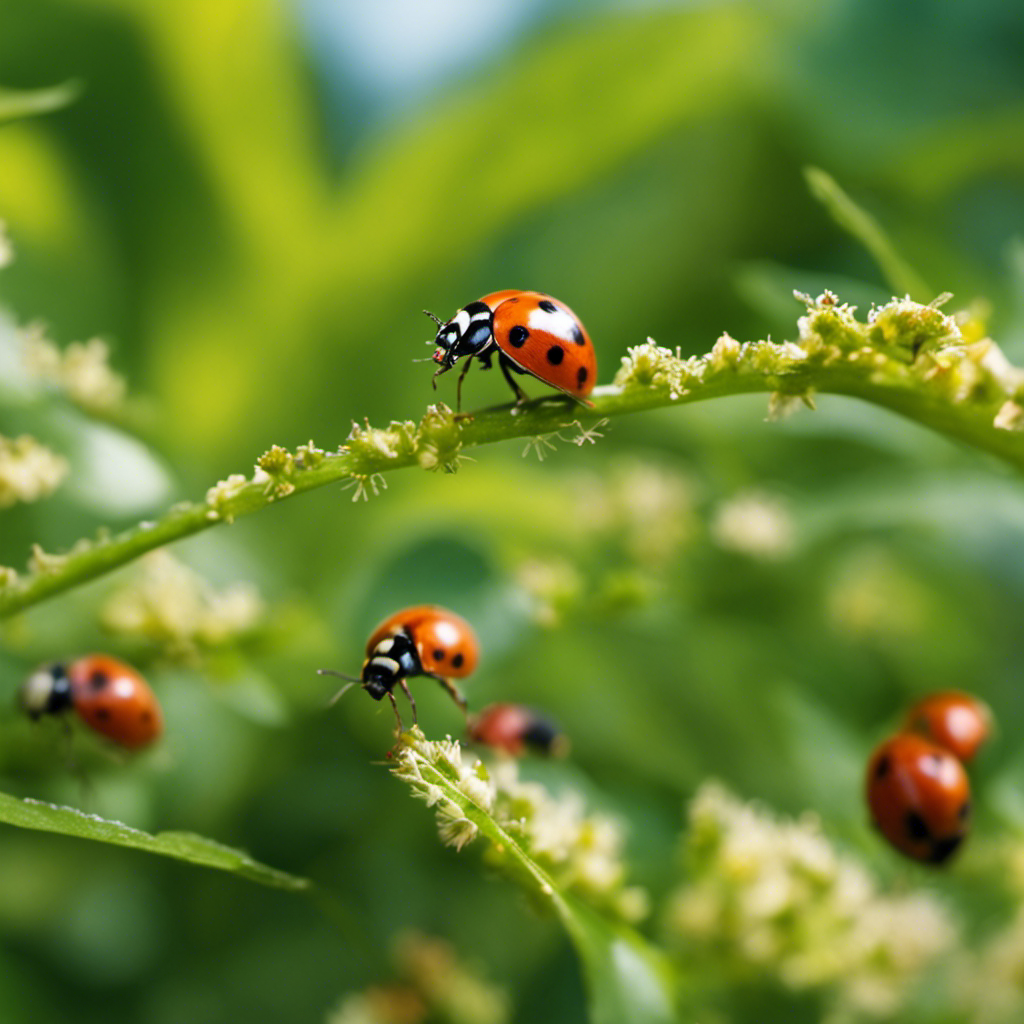
Attracting beneficial insects to your organic garden is a smart and natural way to manage pests without relying on chemical pesticides. By incorporating specific plants into your garden, you can create an inviting habitat for these helpful creatures.
Here are three plants that can attract beneficial insects:
-
Lavender: This fragrant herb isn’t only a beautiful addition to your garden but also a magnet for bees and butterflies. These insects are important pollinators and also prey on harmful pests like aphids.
-
Marigold: The vibrant flowers of marigold release a strong scent that repels pests while attracting beneficial insects such as ladybugs and hoverflies. These insects feed on aphids and other pests, helping to keep your garden healthy.
-
Dill: This herb is a favorite among beneficial insects like lacewings and parasitic wasps. These insects are natural predators of caterpillars and other garden pests, making them invaluable allies in pest control.
By including these plants in your garden, you’re creating an environment that encourages natural pest control. The presence of beneficial insects helps maintain a balance in your garden ecosystem, reducing the need for chemical interventions.
Homemade Pest Sprays
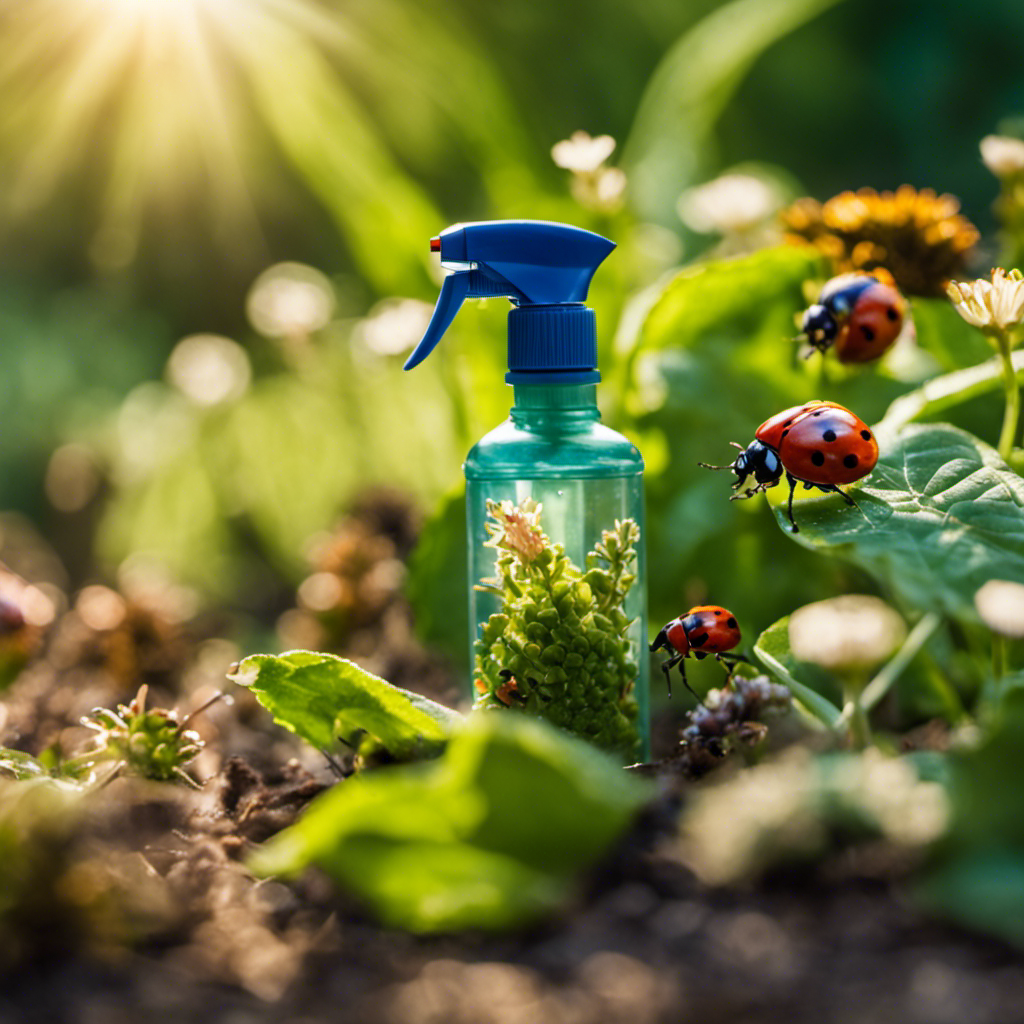
For effective pest control in your organic garden, consider using homemade sprays with natural ingredients. Homemade pest sprays are a cost-effective and environmentally-friendly way to keep pests at bay. By using natural ingredients, you can create effective pest deterrents without the use of harmful chemicals. Here is a table showcasing five homemade pest sprays and their organic pest control methods:
| Homemade Pest Spray | Organic Pest Control Method |
|---|---|
| Neem Oil Spray | Repels and kills insects |
| Garlic and Pepper Spray | Repels insects and pests |
| Soap and Water Spray | Suffocates and kills insects |
| Vinegar Spray | Deters pests and disrupts their senses |
| Essential Oil Spray | Repels insects and pests |
These homemade pest sprays can be easily made at home using common ingredients and are safe for both plants and the environment. Try these organic pest control methods to effectively protect your organic garden from pests.
Physical Barriers
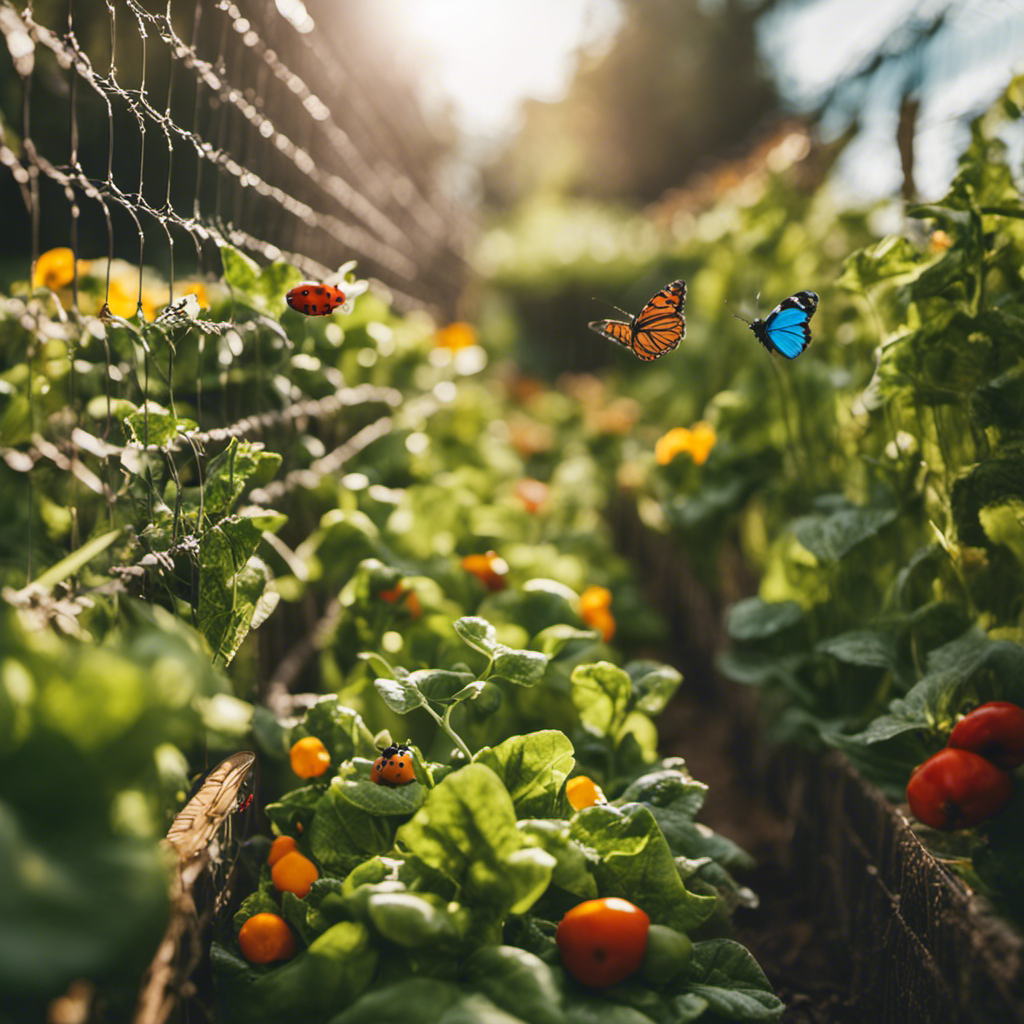
Using physical methods to create barriers is an effective way to prevent pests from entering your organic garden. These barriers are natural and can keep unwanted pests away from your plants. Here are some methods you can consider implementing:
-
Install vertical gardening structures: Vertical gardening not only maximizes space but also serves as a physical barrier, making it difficult for pests to reach your plants.
-
Use raised beds: Raised beds provide an extra layer of protection by elevating your plants off the ground. This makes it harder for pests to access them.
-
Install mesh netting: Covering your garden beds or individual plants with mesh netting can effectively deter pests while still allowing sunlight and air to reach your plants.
Crop Rotation

Maintaining a pest-free organic garden is crucial, and one effective technique to achieve this is by implementing crop rotation. Crop rotation involves changing the type of crops you plant in a specific area each season. This simple practice has several benefits, including improving soil health and preventing the buildup of pests and diseases.
By rotating your crops, you disrupt the life cycles of pests that may be specific to certain plants, reducing their chances of survival and reproduction. Additionally, crop rotation allows you to take advantage of the natural pest resistance found in some crop varieties. By planting pest-resistant varieties in different areas each season, you can provide further protection against potential infestations.
Conclusion
Achieve a Pest-Free Organic Garden Naturally in 30 Days
In just 30 days, you can create a pest-free organic garden using natural methods. By practicing companion planting, attracting beneficial insects, making homemade pest sprays, using physical barriers, and implementing crop rotation, you can maintain a thriving garden without resorting to harmful chemicals.
These techniques not only benefit your garden but also contribute to a healthier environment. Start incorporating these practices today and reap the rewards of a pesticide-free garden.
Remember, a little effort goes a long way in creating a sustainable and vibrant organic garden.
